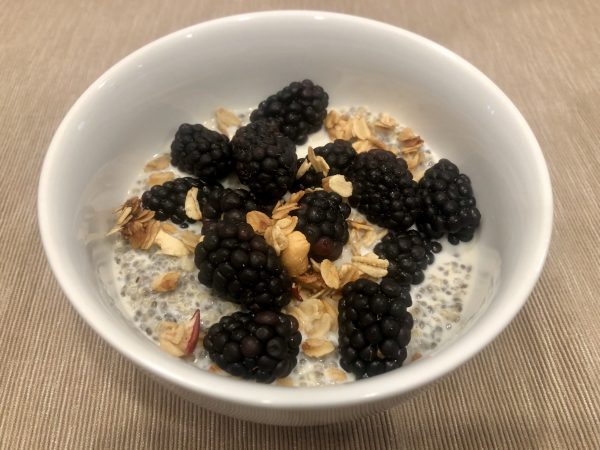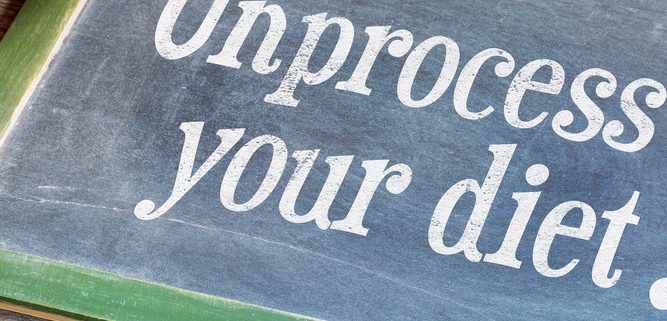Your Digestion and Your Brain
Better digestion is linked to better brain health.
The goal of digestion = reduce food into nutrient molecules so miniscule they can be absorbed through your intestinal wall. Your bloodstream picks them up and carries them throughout your body. Every cell of every tissue of every organ depends on your digestive system to provide the nutrients to keep on functioning.
Your brain has a direct effect on your digestive system
If you don’t pay attention what and when you are eating, your brain cannot trigger the proper digestive processes for the foods you’re eating:
- Saliva, containing special enzymes, to start the chemical breakdown of carbohydrates in your mouth.
- Gastric juices secreted in your stomach to breakdown proteins for digestion and to kill bad bacteria and parasites. Stomach (hydrochloric) acid is a good thing – it’s a first line of defense of your immune system
- Bile and pancreatic juices to complete the chemical digestion of carbs, proteins and fats into microscopic nutrient molecules
If your body cannot adequately break down the food you eat, this can cause cascading effects:
- Proteins putrefy, carbohydrates ferment, fats go rancid
- Undigested food impacts the lining of the small intestine. It can become leaky. Proteins and fats can pass through in inappropriate sizes, which overwhelms the immune system
- Bad bacteria in your gut becomes unbalanced. Healthy gut bacteria is linked to brain health
- Inflammation increases leading to chronic diseases, including mental health and neurodegenerative illnesses
Your digestive system has a direct effect on your brain
Did you know that your gastrointestinal (gut) contains more neurotransmitters than your brain? It is highly wired to your brain. Messages travel back and forth. When those messages are altered in any direction – from the brain to the gut or the gut to the brain – your health will suffer.
Your gut health determines
- what nutrients are absorbed
- what toxins, allergens and microbes are kept out
Gut health could be defined as the optimal digestion, absorption and assimilation of food. This promotes mental fitness and brain health.
[su_expanding_quote_book alignment=”full” source_author=”Leslie Korn, MD” source_title=”Nutrition Essentials for Mental Health” full_quote=”The gut is often called the second brain because it is a major source of neurotransmitter production in the body. It is not surprising that people with chronic digestive problems are often anxious and depressed. The digestive system generates healthy bacteria and neurotransmitters that support efficient brain chemistry. Where there is mental illness there is a history of digestive problems.” ” short_quote=”The gut is often called the second brain because it is a major source of neurotransmitter production in the body”]You are what you absorb
Even if you are eating nutrient-dense whole foods that optimize mental fitness and brain health, they will literally go down the toilet if you are not digesting properly.
What to Do
[su_expanding_quote_book alignment=”right” source_author=”Mark Hyman, MD” source_title=”UltraMind Solution” full_quote=”With digestive issues specifically, we gain tons of benefits from the fiber found in plants, which feeds our good gut bacteria, calms inflammation, supports nutrient absorption, strengthens our immune system, and helps us eliminate toxins, among many other important jobs — it impacts everything. When we look at studies of the world’s longest-lived populations, we see a common theme of whole, natural plant foods, and other studies show that even if people are eating some animal products, their health is equal to those who aren’t as long as they’re eating lots of vegetables and are generally health-conscious. That’s because plants contain powerful information in the form of nutrients and compounds (orange and yellow foods contain carotenoids, purple and blue foods have anthocyanins, and sulforaphanes are in green cruciferous veggies). The more variety and color in your diet, the healthier it is, because that means more medicine for your cells.” short_quote=”The more variety and color in your diet, the healthier it is, because that means more medicine for your cells.”]- Eat mindfully. Embrace the whole sensory experience. The thought, sight and smell of food trigger effective digestive processes and enhance the experience of texture and flavors.
- Slow down to eat. Digestive enzymes flow best in a state of relaxation. Stress interferes with digestion. It also takes 20 minutes for your stomach to message your brain that it is full.
- Eat more fiber – feeds our good gut bacteria, calms inflammation, supports nutrient absorption, strengthens our immune system, and helps us eliminate toxins.
- Add fermented foods to your diet – they too feed the good bacteria in your gut and improve brain health
- Connect with your digestive system. How is it working?
The RESTART Program is a powerful way to find out
Seasonal Fiber-rich Recipes
[su_expanding_quote_book alignment=”right” source_author=”Leslie Korn, MD” source_title=”Nutrition Essentials for Mental Health” full_quote=”Fiber intake is essential to mental health. Soluble fiber slows down digestion. It increases the feeling of fullness and slows down the rate at which the stomach empties. This slows down the absorption of glucose, essential in the diets of people with diabetes. Insoluble fiber absorbs water and puffs up like a sponge passing through the digestive tract and pushing materials through.” ” short_quote=”Fiber intake is essential to mental health”]15 Chia Puddings – A Glow Lifestyle
Chia has both soluble and insoluble fiber. And it has the added benefit of being rich in Omega-3 fatty acids, vital nutrient for your brain.

5 Delicious, Nutritious Chili Recipes – Color My Food

10 Delicious Nutritious Pumpkin Recipes – Color My Food

Best Kale Salads – Pinch Me Good




Leave a Reply
Want to join the discussion?Feel free to contribute!